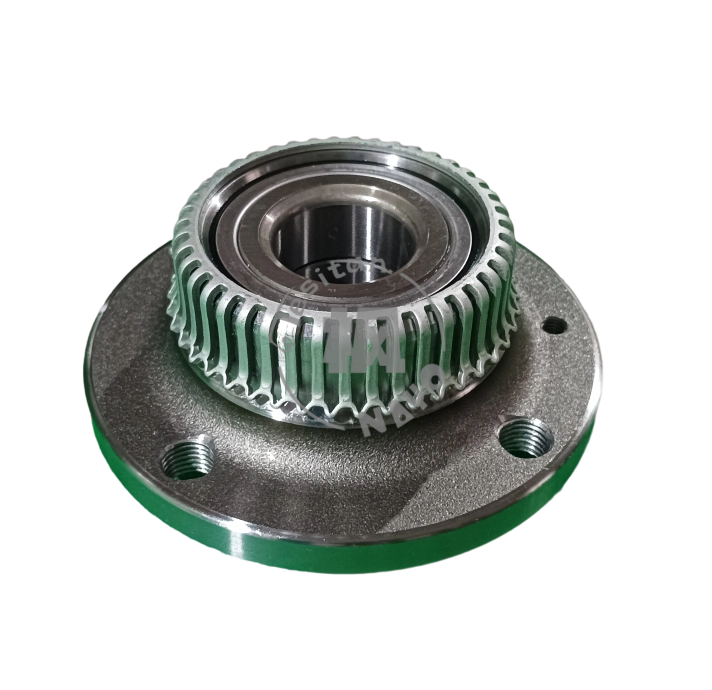

Views: 0 Author: Site Editor Publish Time: 2025-11-07 Origin: Site











The wheel hub bearing is a critical component in the vehicle's suspension and braking system, playing a pivotal role in ensuring smooth wheel rotation and stability. Regular maintenance and timely replacement of the wheel hub bearing are essential to avoid potential safety hazards and ensure optimal vehicle performance. This article delves into the factors influencing the replacement frequency of wheel hub bearings, providing insights into the signs of wear, the impact on vehicle systems, and best practices for maintenance.
For those seeking detailed specifications and options for wheel hub bearings, you can explore the comprehensive range of products available at wheel hub bearing section on our website.
Wheel hub bearings are integral to the vehicle's wheel assembly, allowing for the smooth rotation of the wheels with minimal friction. These bearings are designed to support the vehicle's weight and absorb the forces encountered during driving, such as cornering and braking. The design of a wheel hub bearing typically includes a set of steel balls or rollers housed within a metal ring, known as a race. This configuration allows the bearing to handle both radial and axial loads efficiently.
The longevity of a wheel hub bearing is influenced by several factors, including driving conditions, vehicle load, and maintenance practices. In general, wheel hub bearings are designed to last between 85,000 to 100,000 miles, but this can vary significantly based on usage and environmental conditions.
Several factors can affect the lifespan of wheel hub bearings. These include:
Driving Conditions: Frequent driving on rough or uneven surfaces can accelerate wear and tear on the bearings.
Vehicle Load: Overloading the vehicle can increase the stress on the bearings, leading to premature failure.
Maintenance Practices: Regular inspection and maintenance can help identify early signs of wear and prevent further damage.
Quality of Bearings: The quality of the bearings used can significantly impact their durability and performance.

Identifying the signs of wheel hub bearing wear is crucial for timely replacement and avoiding potential safety issues. Common indicators of worn wheel hub bearings include:
Noise: A humming, rumbling, or growling noise that increases with speed is a common sign of bearing wear.
Vibration: Excessive vibration in the steering wheel or vehicle body can indicate a failing bearing.
Uneven Tire Wear: Worn bearings can cause uneven tire wear due to misalignment.
ABS Failure: A malfunctioning ABS system can sometimes be traced back to a faulty wheel hub bearing.
For more information on the impact of wheel hub bearings on the suspensions and braking system, visit our detailed guide.
The condition of wheel hub bearings can significantly affect various vehicle systems, particularly the suspension and braking system. A failing bearing can lead to increased friction and heat, which can compromise the performance of the brakes and suspension components. Additionally, worn bearings can affect wheel alignment, leading to handling issues and increased tire wear.
Maintaining the integrity of the wheel hub bearings is essential for ensuring the overall safety and performance of the vehicle. Regular inspections and timely replacements can help prevent further damage to the vehicle's systems and ensure a smooth and safe driving experience.
To extend the lifespan of wheel hub bearings and ensure optimal vehicle performance, it is important to follow best practices for maintenance. These include:
Regular Inspections: Conduct regular inspections of the wheel hub bearings to identify early signs of wear and address them promptly.
Proper Lubrication: Ensure that the bearings are properly lubricated to reduce friction and wear.
Use Quality Parts: Use high-quality bearings and components to ensure durability and performance.
Address Issues Promptly: Address any issues with the bearings or related components promptly to prevent further damage.
For a comprehensive selection of wheel hub bearings and related components, visit our products page.
In conclusion, the wheel hub bearing is a vital component of the vehicle's suspension and braking system, and its maintenance is crucial for ensuring vehicle safety and performance. Understanding the factors that influence the lifespan of wheel hub bearings, recognizing the signs of wear, and following best practices for maintenance can help extend the life of these components and prevent potential safety hazards. For further information on maintaining your vehicle's suspension and braking system, explore our resources on suspensions and braking system.